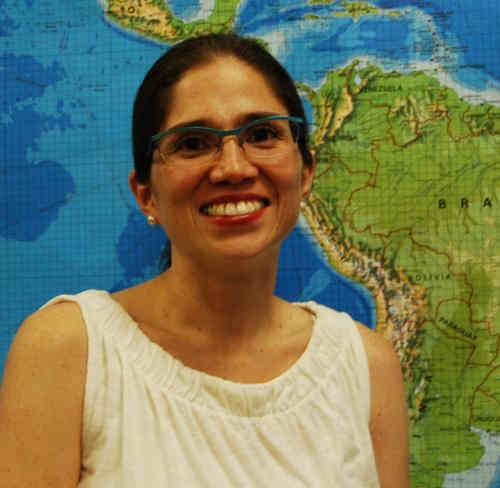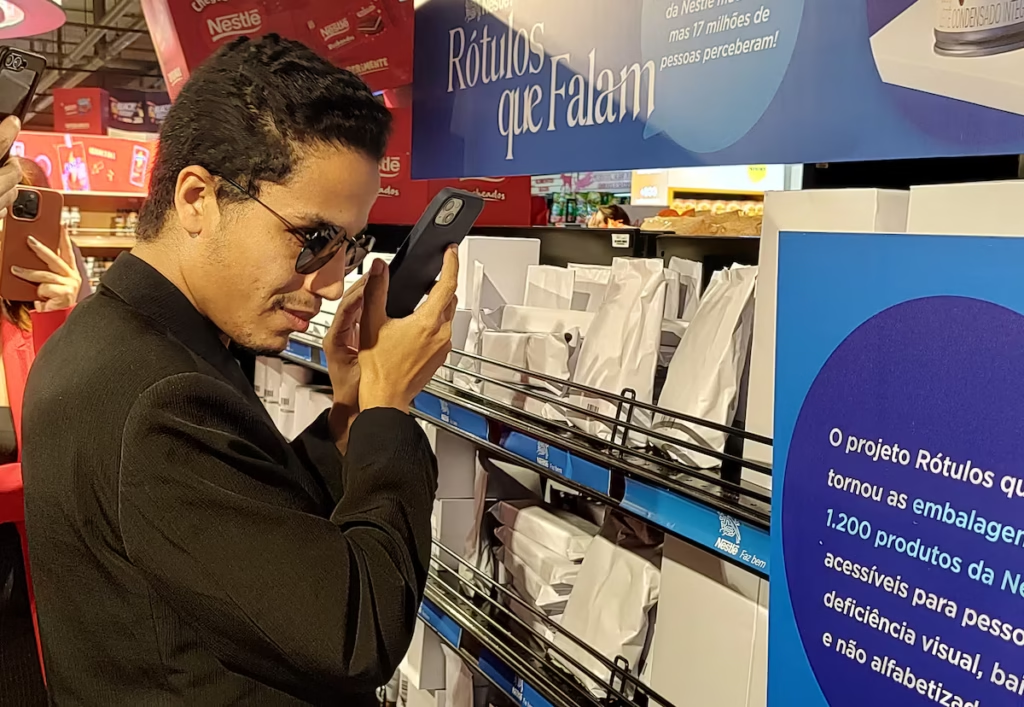
PRESS RELEASE
UN Special Rapporteur on the Rights of Persons with Disabilities
“Persons with disabilities finally join the Special Procedures’ family under the HRC”
Geneva, (6 November 2014) – Catalina Devandas, from Costa Rica, has been appointed by the Human Rights Council as the UN Special Rapporteur on the rights of persons with disabilities.
The President of the Human Rights Council (HRC), Mr Baudelaire Ndong Ella, announced today that Ms Catalina Devandas, from Costa Rica, was appointed as Special Rapporteur on the rights of persons with disabilities.
After a successful process of interviews and consultation, the Consultative Group decided to unanimously recommend Ms Devandas to the position of the Special Rapporteur on the rights of persons with disabilities (SRPD). The Consultative Group wanted to demonstrate value-added vis-à-vis the Committee on the Rights of Persons with Disabilities, the Special Envoy of the Secretary-General on Disability and Accessibility and other United Nations system actors working on disability related matters.
Catalina has worked on disability, development and human rights since early 2000. She is a Costa Rican lawyer born with spina bifida and has been directly involved as an activist with Disabled Persons’ Organizations at national, regional and international levels. She participated in the negotiation process of the UN Convention on the Rights of Persons with Disabilities (CRPD). Catalina has also worked at the World Bank’s Disability and Inclusive Development team for the Latin American and the Caribbean Region and for the Secretariat for the CRPD, United Nations Department of Economic and Social Affairs. She has a Master’s in Disability Studies from the University of Costa Rica. Currently she acts as Program Officer for Strategic Partnerships of the Disability Rights Fund.
Ms Maryanne Diamond, Chair of the International Disability Alliance (IDA), applauds the HRC nomination and congratulates Ms Devandas as the newly appointed Special Rapporteur on the rights of persons with disabilities. According to IDA’s Chair, Ms Devandas represents a valuable asset to support states to fulfil their obligations enshrined in the CRPD and other UN human rights and development instruments, facilitating synergies and avoiding duplication between different UN actors, and ensuring that persons with disabilities and their representative organizations as well as other relevant stakeholders will be adequately consulted and involved in her mandate.
Ambassador Jorge Lomonaco, Permanent Representative of Mexico to International Organizations based in Geneva, declared that ‘Mexico warmly congratulates Ms Catalina Devandas on her appointment and wishes her every success in her very important task. Given her outstanding career in the promotion and protection of the rights of persons with disabilities both at the regional and global levels, we consider that her designation undoubtedly strengthens the system of international mechanisms focused on the protection and promotion of those rights. We are certain that her work, in collaboration with all relevant actors, will contribute to advance towards the paradigm shift that will consolidate persons with disabilities fully as rights holders, both in law and practice’.
‘New Zealand warmly welcomes the appointment of Ms Catalina Devandas to this very important role as Special Rapporteur, said Her Excellency Ms Amanda Ellis, Permanent Representative of New Zealand to the United Nations Office in Geneva. According to her, ‘Ms Devandas is a long-standing advocate’ of the promotion and protection of the rights of persons with disabilities. As Special Rapporteur, Ms Devandas’ work will provide an invaluable new avenue for the ongoing dialogue on the unique challenges that persons with disabilities face at both the domestic and international level. New Zealand looks forward to working with the Special Rapporteur in the years to come’.
Once again, IDA applauds the missions of Mexico and New Zealand for the leading role in the elaboration of the mandate as well as the over 80 missions that co-sponsored theResolution 26/12, which finally brought this UN mandate to join the UN human rights family under the Human Rights Council.
The Special Rapporteur will have the following mandate:
(a) To develop a regular dialogue and to consult with States and other relevant stakeholders, including United Nations agencies, programmes and funds, regional human rights mechanisms, national human rights institutions, national independent monitoring frameworks designated under article 33, paragraph 2 of the Convention on the Rights of Persons with Disabilities, persons with disabilities and their representative organizations, and other civil society organizations toidentify, exchange and promote good practices relating to the realization of the rights of persons with disabilities and their participation as equal members of society;
(b) To gather, request, receive and exchange information and communications from and with States and other relevant sources, including persons with disabilities and their representative organizations and other civil society organizations, on violations of the rights of persons with disabilities;
(c) To make concrete recommendations on how to better promote and protect the rights of persons with disabilities, including on how to contribute to the realization of internationally agreed development goals for persons with disabilities, including the Millennium Development Goals, how to promote development that is inclusive of and accessible to persons with disabilities, and how to promote their role as both agents for and beneficiaries of development;
(d) To conduct, facilitate and support the provision of advisory services, technical assistance, capacity-building and international cooperation in support of national efforts for the effective realization of the rights of persons with disabilities;
(e) To raise awareness of the rights of persons with disabilities, to combat stereotypes, prejudices and harmful practices that hinder their opportunity to participate in society on an equal basis with others, to promote awareness of their positive contributions and to inform persons with disabilities about their rights;
(f) To work closely with the special procedures and other human rights mechanisms of the Human Rights Council, the treaty bodies, in particular the Committee on the Rights of Persons with Disabilities, and other relevant United Nations agencies, programmes and funds, including the United Nations Partnership to Promote the Rights of Persons with Disabilities and the Special Envoy of the Secretary-General on Disability and Accessibility, within their respective mandates, with a view to avoiding unnecessary duplication;
(g) To cooperate closely with the Conference of States Parties of the Convention on the Rights of Persons with Disabilities and the Commission for Social Development, including by participating in their annual sessions upon request;
(h) To integrate a gender perspective throughout the work of the mandate and to address multiple, intersecting and aggravated forms of discrimination faced by persons with disabilities;
(i) To report annually to the Human Rights Council, starting from its twenty-eighth session, and to the General Assembly, in accessible formats and according to their respective programmes of work;
The International Disability Alliance was established in 1999 as a network of seven global and four regional organisations of persons with disabilities (DPOs) and their families, representing the estimated one billion persons with disabilities worldwide. IDA’s unique composition as a network of international DPOs allows it to act as an authoritative and representative voice of persons with disabilities in the United Nations system, both in Geneva and New York.
Member Organisations:
Arab Organization of Persons with Disabilities, Down Syndrome International, European Disability Forum, Inclusion International, International Federation of Hard of Hearing People,
Latin American Network of Non-Governmental Organizations of Persons with Disabilities and their Families, Pacific Disability Forum, World Blind Union, World Federation of the Deaf,
World Federation of the DeafBlind, World Network of Users and Survivors of Psychiatry



